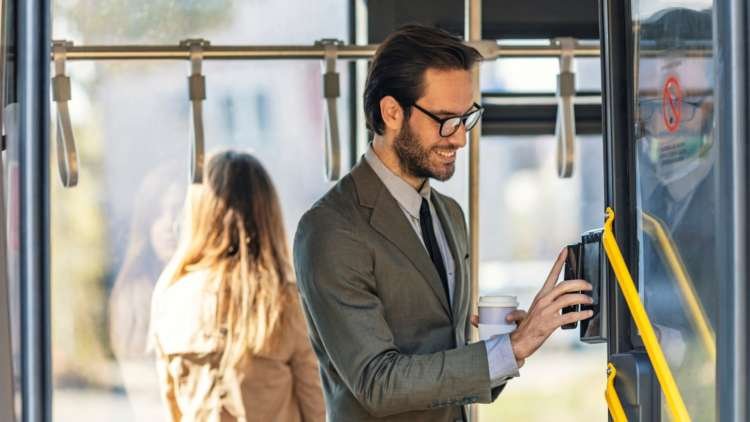Using payments to streamline everyday transport
Published by gbaf mag
Posted on October 21, 2020
4 min readLast updated: January 21, 2026

Published by gbaf mag
Posted on October 21, 2020
4 min readLast updated: January 21, 2026

By Venceslas Cartier, Global Head of Transportation & Smart Mobility at Ingenico Enterprise Retail
Once upon a time the only way to get from A to B on public transport was with cash – and likely a pre-paid ticket bought from a physical office. Nowadays, thanks to technological developments, options range from contactless and mobile payments, to in-app tickets and more. As payment methods advance, consumers and merchants are naturally moving towards Mobility as a Service (MaaS) systems, integrating various forms of transport services into a single mobility service, accessible on demand.
This move towards MaaS does not only streamline the consumer experience, it has other positive impacts too. Incentivising public transport use reduces environmental pollution, improves mental wellbeing by reducing travel-related stress, and aids productivity by freeing up time otherwise spent driving. With this in mind, let’s take a look at the current trends affecting the transport sector, as well as how payments can optimise transportation for both operators and consumers alike.
Optimising transport with payments
The payment process is integral to any service. A payment service provider (PSP) can provide a range of key benefits to operators by proving a gateway to the transportation open payment ecosystem, and ensuring they meet objectives in 3 key areas.
Payments professionals’ expertise and technological solutions can make payments easy again for transport operators. They can provide a range of options so that the customer can choose which one is right for them, leveraging the capabilities of the mobility services’ infrastructure (contactless, mobile wallets, P2P, closed-loop, QR code, and blockchain).
Furthermore, they can help promote inclusion and sustainable urban development. For example, methods such as prepaid virtual cards, or mobility accounts linked to a prepaid account can reduce the risks of excluding the unbanked. The environmental impact per kilometre can also be reduced, along with the use of vehicles with lower emissions per person per kilometre.
Finally, PSPs can put merchants’ minds at ease, providing payment liability, allowing aggregation of all due amounts from all mobility service providers, and collecting payments in one single transaction from users while dispatching revenue between mobility service providers.
Managing coronavirus

Venceslas Cartier
COVID-19’s disruption to the travel industry cannot be overlooked. In fact, research suggests that public transit ridership is down 70% across the globe since the onset of the virus, longer distance travel has seen reductions of up to 90%, and payment by cash has seen a 60% drop.
Being realistic, these behavioural shifts are unlikely to revert anytime soon, so it’s important for merchants to keep this in mind when thinking about payment methods. More than 70% of consumers and travellers say they are likely to avoid the use of cash over the next six months. As a result, more than 40 countries have already raised their contactless payment threshold, further helping consumers to avoid contact with frequently touched pin pads.
However, the pandemic has only accelerated the way things were heading already and highlighted the benefits. Within the context of the pandemic, transportation needs to reinvent itself and adapt its processes to suit the shift in commuter habits that we’ve already seen and will continue to see in the future.
Other trends to keep an eye on
Contactless has been steadily growing on the transport scene, as have mobile payments and in-app purchases. In fact, the recent move to mobile and online ticketing is the most promising method so far, having seen significant growth in the last few years and having been accelerated by COVID-19 as discussed above. Once consumers move to these easy, convenient, and seamless methods, it’s rare that they revert – so it’s a good idea for operators to think how they can cater to these preferences.
Speed and convenience are a must for busy travellers – but not at the expense of data security. Finding the right payments partner is therefore crucial so operators can safeguard their customers’ personal data, while also keeping on top of other security regulations/features such as P2P encryption, PCI certification, and tokenisation.
Next steps for operators
Public transport is essential for many peoples’ everyday lives – COVID-19 or no COVID-19. As such, mobility service providers can make a great difference to their service and operations by implementing the right solutions.
Explore more articles in the Top Stories category











